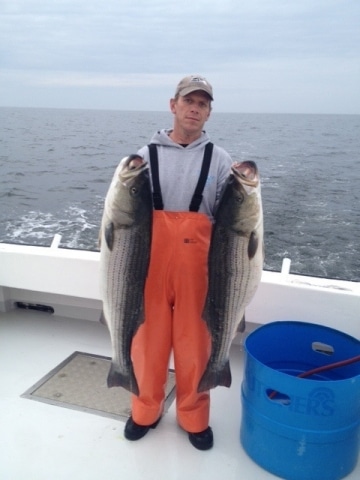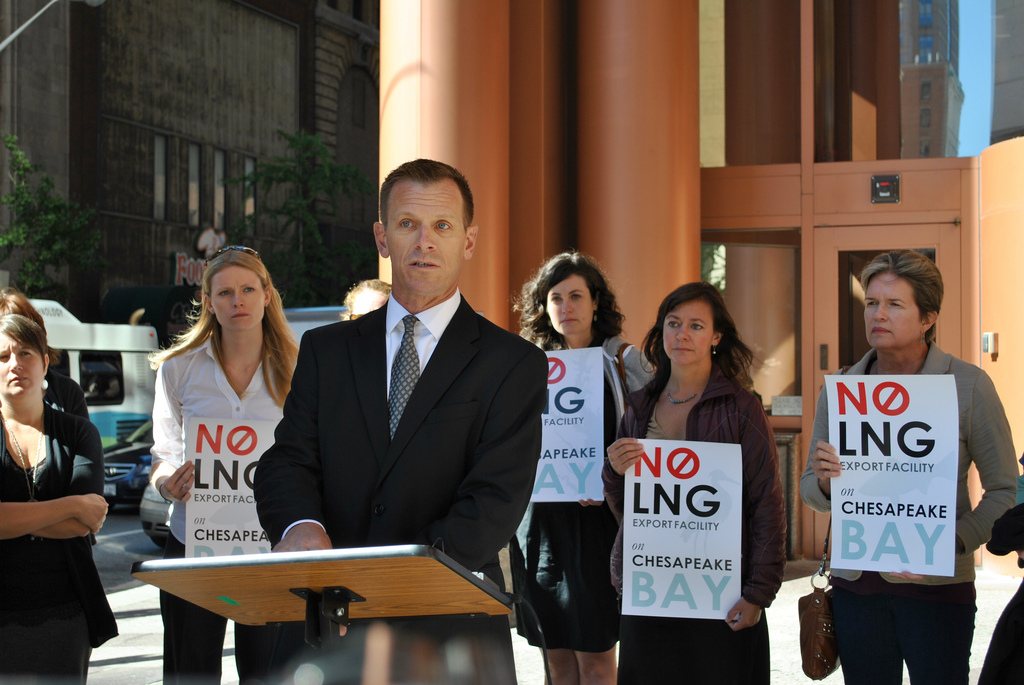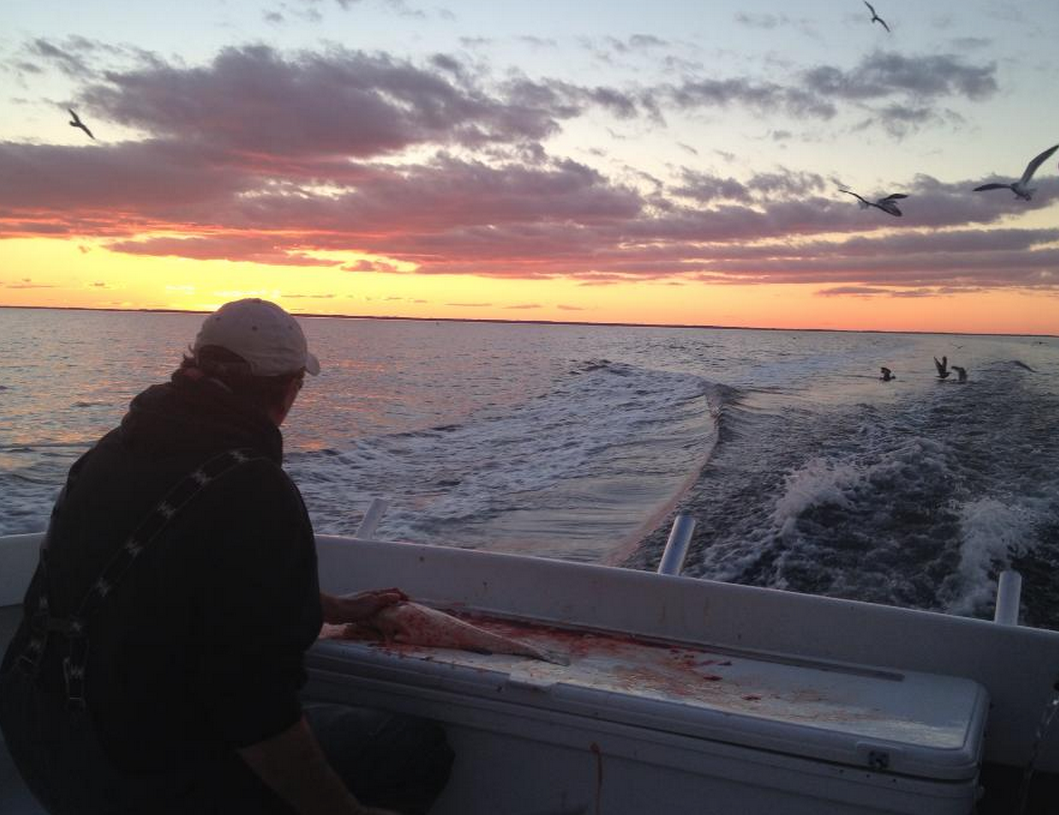Pete Ide probably isn’t the first person you’d expect to oppose the Dominion Cove Point liquefied natural gas (LNG) terminal.
“First of all, I have to be frank,” he says. “I depend on fossil fuels to make a living.” A charter boat captain on the Chesapeake Bay, Ide has fished his entire life. As such, he’s seen the decline in water quality and marine life in the Chesapeake firsthand.
“The water quality has been so bad these past two years, I had to move my boat because there weren’t any fish here,” he says. The dead zones get larger every year as algae blooms exacerbated by runoff from farm fertilizer, industrial livestock and poultry production eat up the oxygen marine life needs to survive.
Though the Dominion Cove Point LNG terminal won’t be dumping fertilizer, Ide says it will just be one more step in the degradation. “It’s not going to put me out of business,” he says, “but it’s another brick in the wall. It’s 49 more acres of heavy industrial build-out on the shores of the Chesapeake Bay.”
Through seafood production and tourism, the Chesapeake Bay supports more than a trillion dollars of economic activity. The Calvert County shore in Maryland, where Dominion Energy plans to build the liquefaction facility, is home to wetlands and rare species of plants and animals, including migratory birds. Construction would require clearing forests and bringing in heavy construction materials on the Patuxent River.
Dominion Energy’s plans require constructing an on-site 130 megawatt power plant, storage units and a liquefaction facility. Upstream, pipelines, pier adjustments and compressor stations will need to be constructed or adapted for shipping natural gas.
When constructed, the facility will be the fourth largest greenhouse gas emitter in Maryland, and it won’t just be pumping out greenhouse gases. Nitrogen oxides, sulfur dioxide and particulates are all byproducts of natural gas usage and are air pollutants regulated by the Environmental Protection Agency under the Clean Air Act. The World Health Organization recognized the negative health effects of air pollution, such as cancer, earlier this year.
Needless to say, Ide is not just concerned about his livelihood.
“I think this is going to have a serious and profound impact on our quality of life here in Calvert County, certainly during the construction phase…when the construction phase is finished, the effects will be much more insidious and not as noticeable – unless you happen to live right in the area of the facility,” he says.
“That’s who I feel like I am fighting for more than anything at this point…I think this is a classic case of big fossil fuel business coming in and making backdoor deals with local businesspeople and politicians.”
Pete Ide speaks out against the Dominion LNG export plan.
In October 2013, a statewide poll commissioned by the Chesapeake Climate Action Network found that 81 percent of Marylanders believed a full environmental impact statement should be conducted for the proposed Cove Point expansion. The Federal Energy Regulatory Commission has not indicated any plans to conduct a full environmental impact statement and, according to environmental groups, the commission looks likely to use a less comprehensive environmental assessment.
The commission is not required to conduct an environmental impact statement for minor modifications, but environmental groups say Dominion Energy’s assertion that the project is minor is “misguided and absurd.”
In an October letter to Maryland state Governor Martin O’Malley, 122 local, state and national groups urged the governor to demand a full federal environmental impact assessment on the liquefaction expansion project.
Ide says regulators have only taken short-term economic concerns into consideration rather than the long-term impacts the facility will have on environmental quality and safety. There are restrictions in place to make sure construction is done safely along the shore, but Calvert County is considering exempting Dominion from local zoning regulations.
As someone observing the traffic on the Bay, Ide also worries about the potential for a BLEVE, an acronym for a Boiling Liquid Expanding Vapor Explosion. These explosions occur when a vessel holding a liquid pressurized above its boiling point suddenly ruptures. (The Quebec train disaster that killed 47 people in July is one example.)
The National Transportation Safety Board recently warned that a “major loss of life” could result from the increasing use of trains to carry crude oil.
The potential for explosions at LNG facilities and ships is still debated, although everyone agrees the risk is low. Still, Ide says, the risk is more than zero, and it increases with every extra gallon of liquefied natural gas and every extra tanker travelling through the Patuxent River and the Bay. Dominion Energy says it is committed to safety and has worked with Calvert County to institute emergency plans.
Then again, the risk of the Quebec train explosion and BP’s Gulf of Mexico oil spill were also considered minimal.
“We don’t have to try to scare people,” Ide says, “but on that note, I feel like our security is definitely threatened by that plant being there.”
Image credits: CaptPete.net and Chesapeake Climate Action Network
Subscribe to our newsletter
Stay up to date with DeSmog news and alerts









